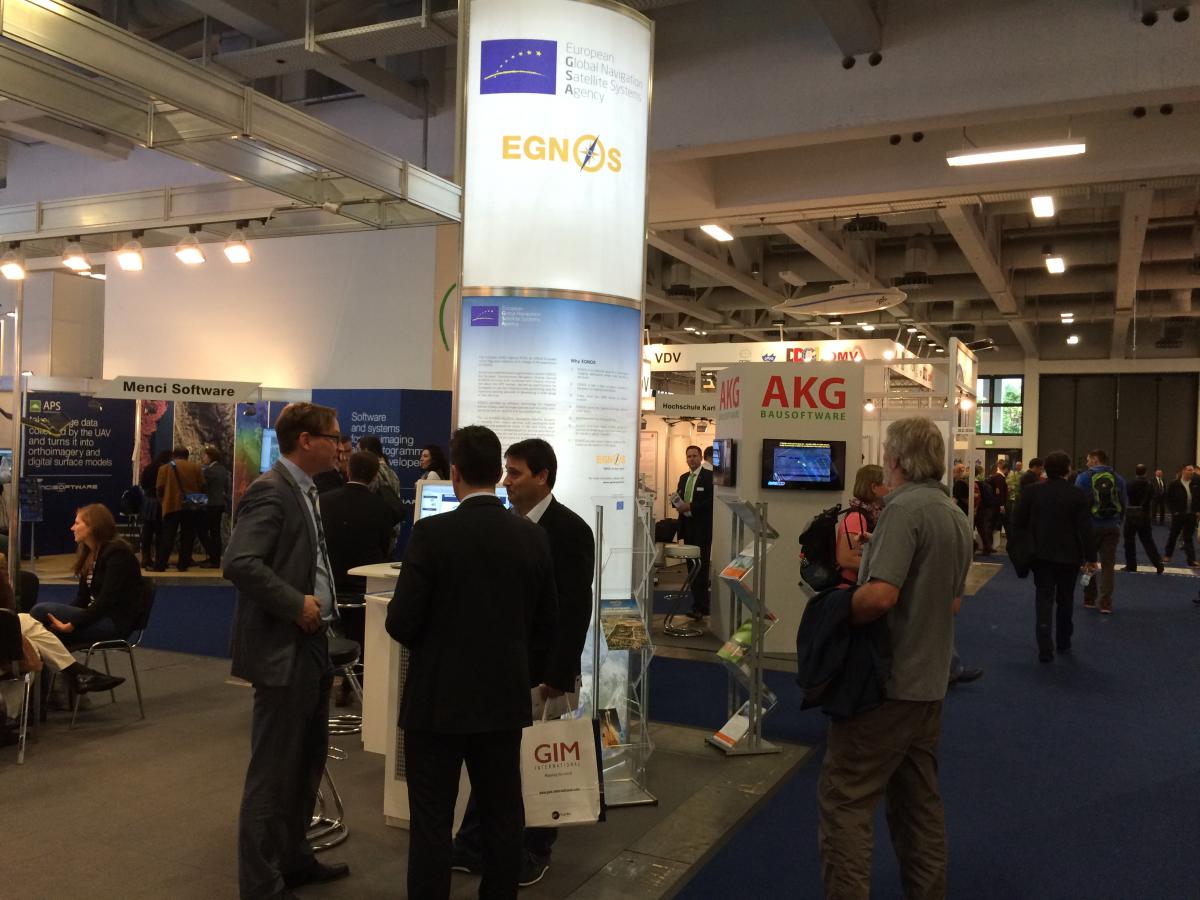The Middle East is witnessing tremendous advances in the field of geospatial technologies with countries across the region developing their own geospatial infrastructures and strategies. At the recent Middle East Geospatial Forum in Dubai the European GNSS Agency (GSA) showed how Galileo and EGNOS are able to contribute to developments in the region.
 The Middle East Geospatial Forum (formerly known as Map Middle East) was held in Dubai, United Arab Emirates from 2 to 4 February, 2014. Its core theme was ‘GeoSmart Government’. The forum is an international platform that facilitates the building of networks for the geospatial community in the Middle East and also explores various aspects of the technologies.
The Middle East Geospatial Forum (formerly known as Map Middle East) was held in Dubai, United Arab Emirates from 2 to 4 February, 2014. Its core theme was ‘GeoSmart Government’. The forum is an international platform that facilitates the building of networks for the geospatial community in the Middle East and also explores various aspects of the technologies.
The GSA was present and contributed to a plenary session at the conference on ‘Geospatial Strategy for National and Regional Development’.
The Middle East is witnessing tremendous advances in the field of geospatial technologies. Countries across the region are coming up with their own geospatial infrastructures and strategies that are set to empower national and regional development. This plenary investigated how the creation of these infrastructures has helped in national and regional development and what more could be in store on this front. Topics covered included Regional Spatial Data Infrastructures, Regional Navigation Satellite Systems and Earth Observation Systems
European services
Gian Gherardo Calini, Head of Market Development at GSA presented the status and services that are being delivered today by Europe’s EGNOS space-based augmentation system for GNSS and the opportunities offered by the Galileo GNSS and Copernicus Earth Observation system in the very near future.
Calini described how EGNOS is already providing services to aviation and ground based users across Europe creating public benefits for national and regional development. Examples include the development of widespread precision farming techniques and intelligent road transport systems.
The advent of Galileo will multiply these benefits and expand their availability from Europe to a worldwide scale. Early services from Galileo will be available in 2014 stated Calini. And together with Copernicus, the other European Union flagship programme on Earth Observation, the successful deployment of the Galileo GNSS constellation will position Europe globally as a very important player on the geospatial stage said Calini.
The unique civilian nature of these important programmes offered immense opportunities for cooperation and development in realizing regional systems and services across a range of sectors.
Media note: This feature can be republished without charge provided the European GNSS Agency (GSA) is acknowledged as the source at the top or the bottom of the story. You must request permission before you use any of the photographs on the site. If you republish, we would be grateful if you could link back to the GSA website.